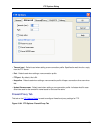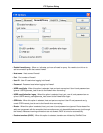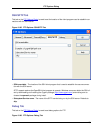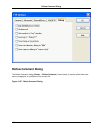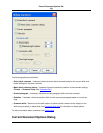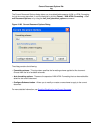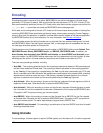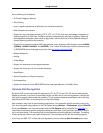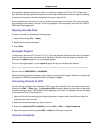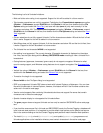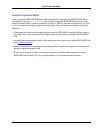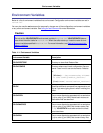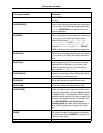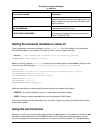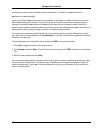
for the following list of features:
• All Context Tagging® features.
• Color Coding.
• Level 1 regular expressions as defined by the Unicode consortium.
• Multi-file search and replace.
• Support for many encodings including UTF-8, UTF-16, UTF-32, and many code pages. Automatic en-
coding recognition for XML files. Configure encoding recognition per extension or globally. Optionally
store signatures and specify little endian or big endian. Use the Save As or Write Selection dialog to
convert data to a particular file encoding.
• Support for converting Unicode to UNC data and visa versa. Supported UCN formats include \xHHHH,
\x{HHHH}, \uHHHH, &xHHHH;, and &xDDDD;. This is useful for specifying Unicode character strings
in SBCS/DBCS active code page source files. See Converting Unicode to UCN.
• Multiple clipboards.
• Sorting.
• 3-Way Merge.
• Support for composite and surrogate characters.
• Support for storing up to 31-bit Unicode characters.
• SmartPaste®.
• Syntax Expansion and Syntax Indenting.
• Code beautifiers.
• Support for almost all of the SBCS/DBCS active code page features in SlickEdit® Core.
Unicode File Recognition
By default, XML and Unicode files with signatures (UTF-8, UTF-16 and UTF-32) files are automatically
loaded as Unicode. If you have Unicode files that are not XML and do not have signatures, configure de-
fault options to get the best recognition possible. This is important because some features such as drag/
drop files and DIFFzilla® do not prompt you for the file encoding.
Each extension may have its own encoding specification. If the extension-specific encoding is set to De-
fault, then the global setting defined in the File Options dialog (Window → Preferences, expand SlickEd-
it and click General in the tree, then double-click the File Options setting and select the Load Tab) is
used. Both the extension-specific and global setting are overridden if you previously specified an encod-
ing in the Open dialog. The encoding used to override default encoding settings is recorded. The setting
is then reused the next time you open the same file. This provides you with per-file encoding support.
If you have non-XML UTF-16 files that have signatures, then try selecting Auto Unicode2 as an exten-
Using Unicode
471



